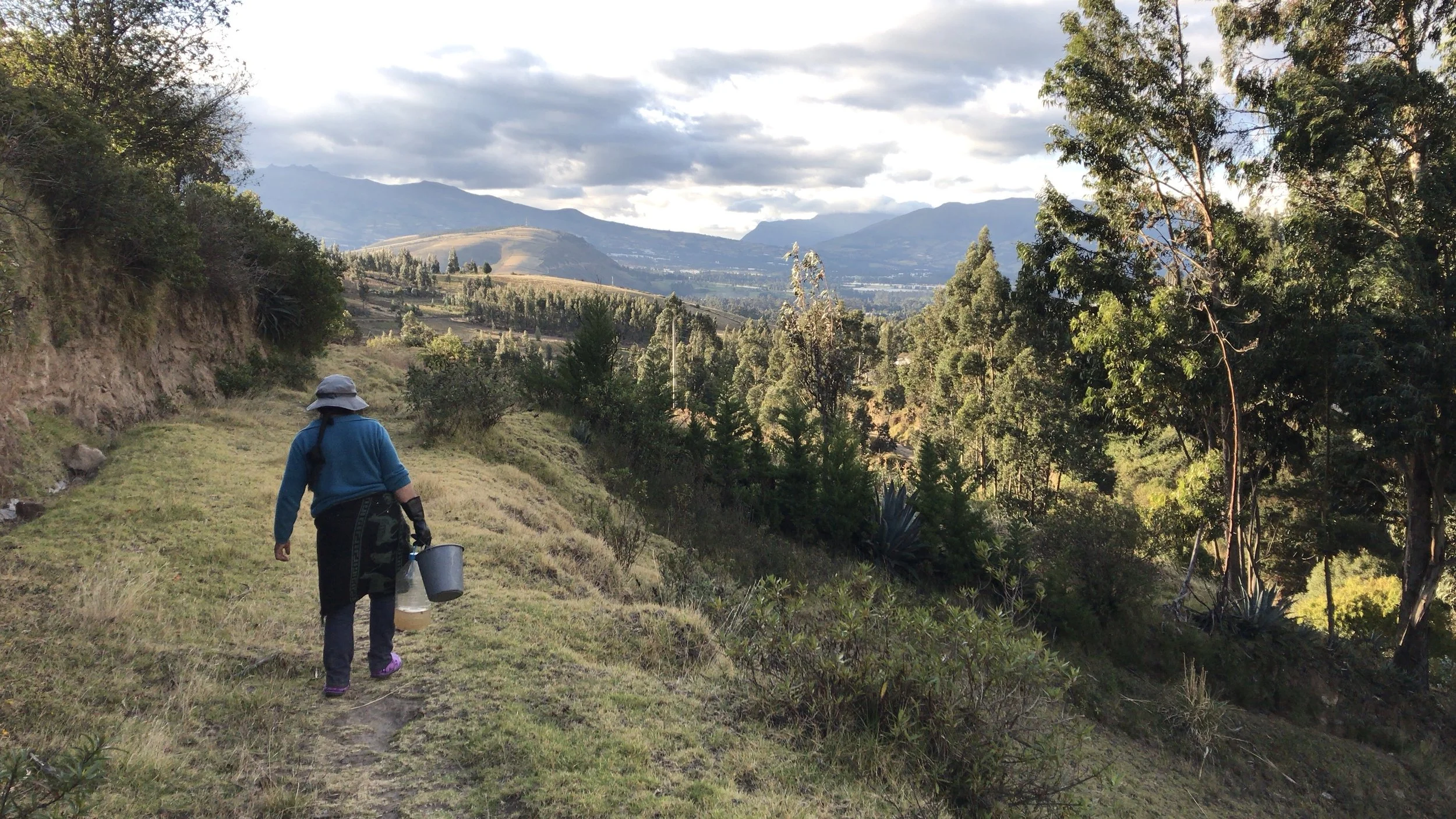
Our Approach
Aliados has developed a 4-pronged approach to connect smallholder farmers to responsible markets through regenerative agriculture. The four strategic priorities in our model are:
Regenerative agriculture
Aliados supports small and indigenous farmers with training, inputs, and microgrants to transition to regenerative farming practices that increase farm profitability, food security, and ecological services.
Bioeconomy incubation
Entrepreneurship can be a pathway for anyone who genuinely cares to help shape the future of their community. We support rural entrepreneurs and their enterprises with training and finance to be successful in agricultural value chains.
Responsible Markets
Aliados brings local and global partners together under a shared vision to build partnerships for transformational change. We leverage our solid corporate network to ensure stable and fair market access for regenerative agriculture and bioeconomy enterprises.
Creating ecological value
We apply cutting-edge technology to precisely measure the ecological value created by regenerative agriculture. We help farmers and businesses incorporate these values into their product lines, increasing the competitiveness of regenerative agriculture.
Where We Work
Andes
Our work takes place in the high Andean valley between the Coca-Cayambe and Cotacachi-Cayapas National reserves. Aliados is promoting regenerative agriculture with close to 300 indigenous and campesino families, six farmer associations and two corporate partners working with goldenberry, honey, and a variety of Andean grains and cereals.
Amazon
The Andean Amazon is arguably the most biodiverse region in the world, and is under serious threat. Aliados is partnering with 13 indigenous communities to incubate a basket of regenerative products to help conserve forest in the Sumaco National Park buffer region, contributing to protecting 225,000 ha of Amazonian forest along an altitudinal gradient from 300-2000m.
Andes-Amazon Cloud forest
These cloud forests, home to emblematic species like the Andean bear, mountain tapir and Andean eagle, are threatened by deforestation from cattle ranching. Aliados is demonstrating a new agroforestry model with local communities that promotes sustainable forest management and agroforestry to reduce pasture expansion.
Chocó
The Ecuadorian Chocó is home to 142 mammal species, of which 15 are endemic and about a quarter of all plant species found here are endemic, but only 2% of primary forest remain intact. Aliados is partnering with the Central Chachi indigenous community to build a regenerative cocoa model to scale up biodiversity conservation in this critical ecosystem.
Fact #1
Over US$3M Farmer income generated through Aliados support to date.
Fact #2
73% Year on year increase in program investments for 2021.
Fact #3
61% Of farmers we work with are women.
Impact story
An important demonstration of the depth of our work was supporting four goldenberry farmer associations apply regenerative farming techniques to overcome a devastating plague called the mancha morada between 2020-2022. Our support included technical assistance, a micro-grant program for farming inputs and tools, and a local promoter program. A baseline study once the plague had already devastated crops, showed that producers were only harvesting 10 or 20 kilos p/week from 300 plants. Others were losing their harvest entirely. After the regenerative agriculture program, producers are now able to produce 100 to 120 kilos of goldenberry weekly from 300 plants (10x), recovering over 80% of their lost income. Importantly, Ruta escondida saw the value of regenerative agriculture and decided to set up a bioeconomy enterprise to produce and sell regenerative inputs to local farmers (many inputs were only available in distant towns). Aliados helped Ruta Escondida create a business plan, which they pitched to us and Aliados provided a $600 seed grant to set up the business which is now selling regenerative inputs to farmers. You can read more about this case in an article written by the MIT-D-Lab, here.

Innovation
A change in farming practices has never been more urgent. Aliados' model incorporates a set of fundamental principles that directly target systems change
Highly collaborative: No one actor can address this problem by themselves: it demands cross-cultural and cross-sectoral collaboration under complex conditions over the long term. Our model is designed, and our team is equipped to build alliances under these "messy" multi-actor conditions.
Comprehensive: We are ecosystem builders, and our model provides a comprehensive solution for all actors to be successful.
Adaptive: We do not promote one-size-fits-all solutions. Rural farmers and communities face market, climate, and other shocks consistently, and adaptive capacity is crucial. We apply tools to increase local adaptive capacity, including Farmer Research Networks (FRN's), Communities of Practice (CoP), and Adaptive Management.
Long-term focus: Social change takes time, so we organize our work in terms of strategic goals organized according to geographic programs and not according to short-term project funding.
Foster innovation: The state is unfortunately largely absent from the rural development context in the Andes and Amazon. Aliados plays a central role in aligning actors under a long-term vision and financing conditions for rural innovation to flourish.
Local leadership for sustainability. Local people are best positioned to be leading the conservation of the Andes and Amazon in 20 years. We build local leadership at multiple levels, from farmer innovators and investigators to indigenous entrepreneurial visionaries to business managers.













